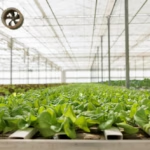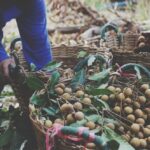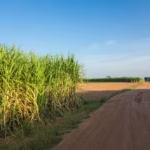Roundup, a widely recognized herbicide manufactured by Bayer, has been a subject of both acclaim and controversy. In South Africa, where agriculture plays a crucial role in the economy, Roundup holds significance as a tool for weed control and crop management. Here are 20 essential things you should know about Roundup (Bayer) in South Africa:
- Glyphosate-Based: Roundup is a glyphosate-based herbicide, with glyphosate being the active ingredient responsible for its weed-killing properties.
- Broad-Spectrum Control: Roundup effectively controls a wide range of annual and perennial weeds, making it a versatile solution for weed management in various crops and non-agricultural settings.
- Systemic Action: Roundup is absorbed through the foliage and translocated to the root system of target weeds, where it disrupts key metabolic processes, ultimately leading to plant death.
- No-Till Farming: Roundup is commonly used in no-till farming systems, where it facilitates minimal soil disturbance and helps preserve soil structure and moisture.
- Pre-Harvest Desiccation: In some crops, such as wheat and barley, Roundup is used as a pre-harvest desiccant to accelerate crop drying and facilitate uniform ripening, aiding in harvest efficiency.
- Crop Safety: When used according to label instructions, Roundup is considered safe for most crops, including maize, soybeans, cotton, and sugarcane, among others.
- Residual Effects: Roundup has minimal residual activity in the soil, allowing for crop rotation flexibility and reduced risk of carryover effects on subsequent plantings.
- Rainfastness: Roundup is rainfast within hours of application, providing reliable weed control even under unpredictable weather conditions.
- Application Methods: Roundup can be applied using various methods, including foliar spraying, directed spraying, and spot treatment, offering flexibility in application techniques.
- Adjuvants: Adjuvants may be added to Roundup formulations to enhance herbicidal activity, improve spray coverage, and mitigate factors such as hard water and spray drift.
- Resistance Management: Due to the risk of weed resistance, Bayer promotes integrated weed management (IWM) practices, including herbicide rotation, tank mixtures, and cultural control methods, to prolong the effectiveness of Roundup.
- Environmental Impact: Roundup has been the subject of environmental concerns, particularly regarding its potential effects on non-target organisms, water quality, and biodiversity.
- Regulatory Approval: Roundup products undergo rigorous testing and regulatory review before approval for use in South Africa, ensuring compliance with safety and environmental standards.
- Safety Precautions: Users of Roundup are advised to follow safety precautions outlined on the product label, including wearing appropriate personal protective equipment (PPE) and adhering to recommended application rates and timing.
- Public Perception: Roundup’s public perception has been influenced by legal disputes and controversies surrounding its alleged carcinogenicity, leading to heightened scrutiny and debate over its safety.
- Glyphosate Residue: Residues of glyphosate, Roundup’s active ingredient, have been detected in food products and environmental samples, prompting ongoing research and monitoring efforts to assess potential health and environmental risks.
- Alternative Products: In response to concerns over glyphosate, Bayer offers alternative herbicide solutions for weed control, including non-glyphosate-based formulations and herbicide-tolerant crop technologies.
- Community Engagement: Bayer engages with stakeholders, including farmers, regulators, and environmental groups, to address concerns, promote responsible use practices, and foster transparency in communication.
- Research and Innovation: Bayer invests in research and innovation to develop new herbicide technologies and sustainable weed management solutions, aiming to address evolving challenges in agriculture while minimizing environmental impact.
- Continuous Monitoring and Improvement: Bayer remains committed to continuous monitoring, evaluation, and improvement of Roundup formulations and stewardship programs, with a focus on sustainability, safety, and efficacy.
In conclusion, Roundup (Bayer) plays a significant role in weed management and crop production in South Africa, offering effective solutions for farmers while facing scrutiny and debate over its safety and environmental impact. With responsible use practices, regulatory oversight, and ongoing research efforts, Roundup continues to evolve as an integral tool in South Africa’s agricultural landscape.







